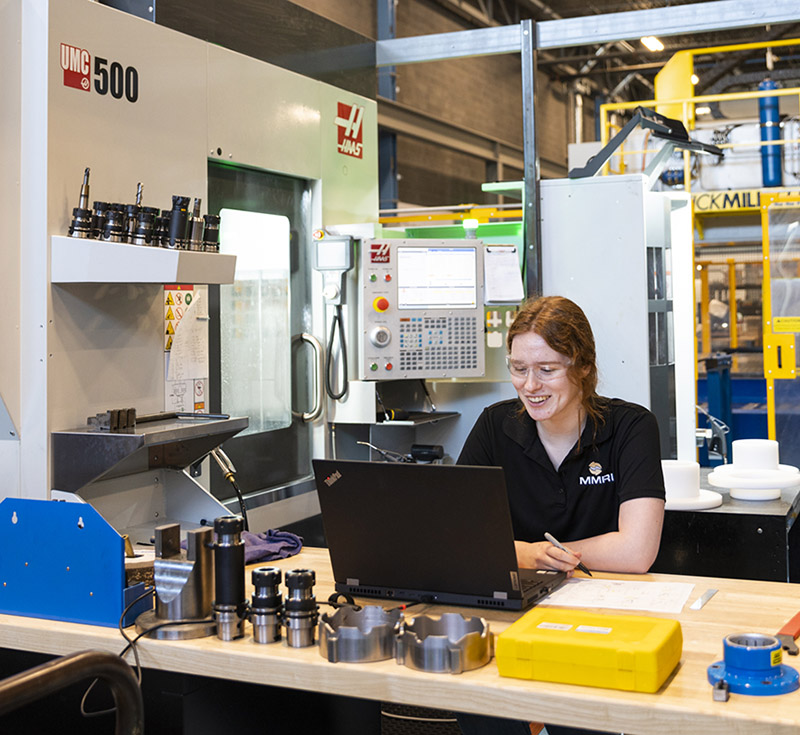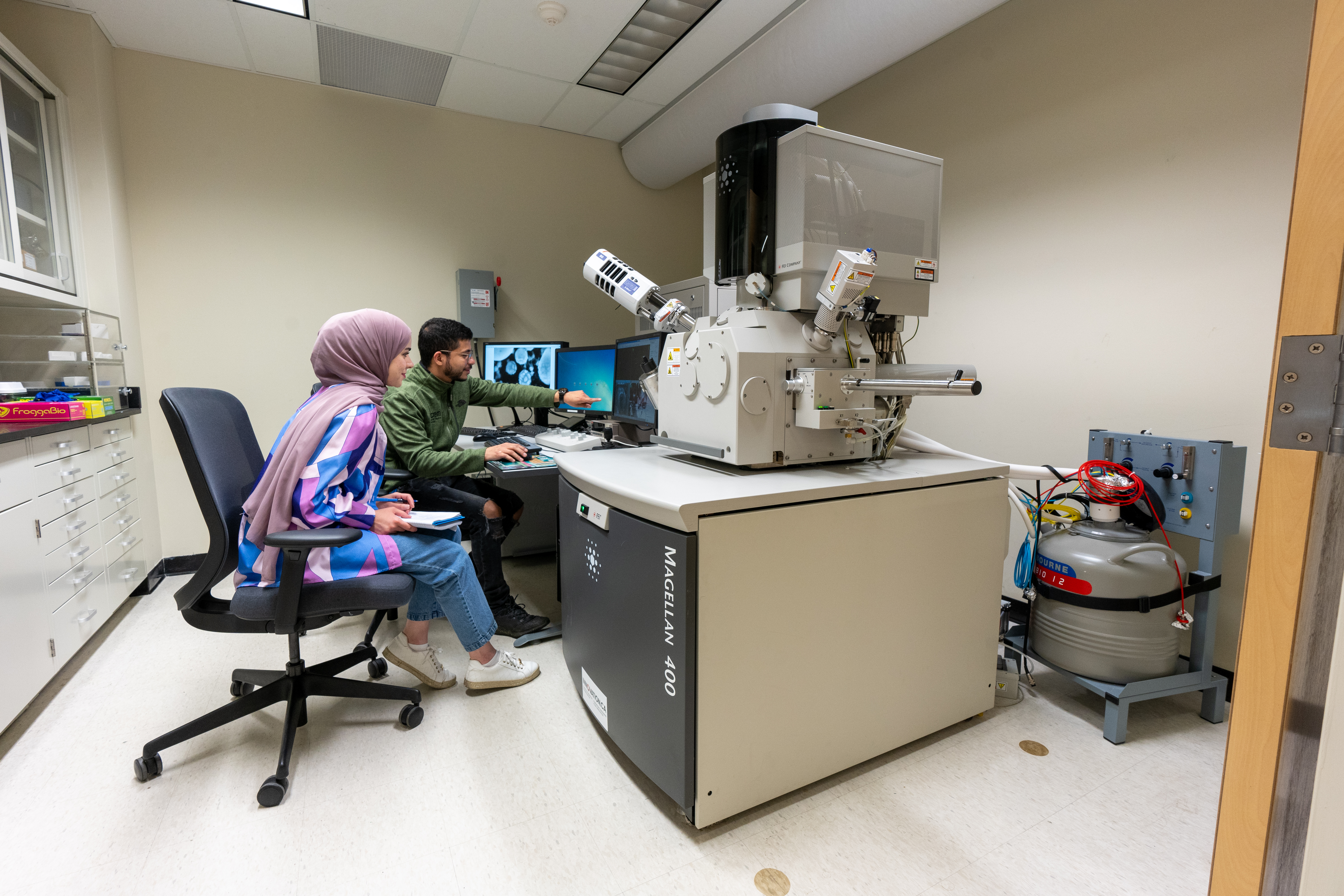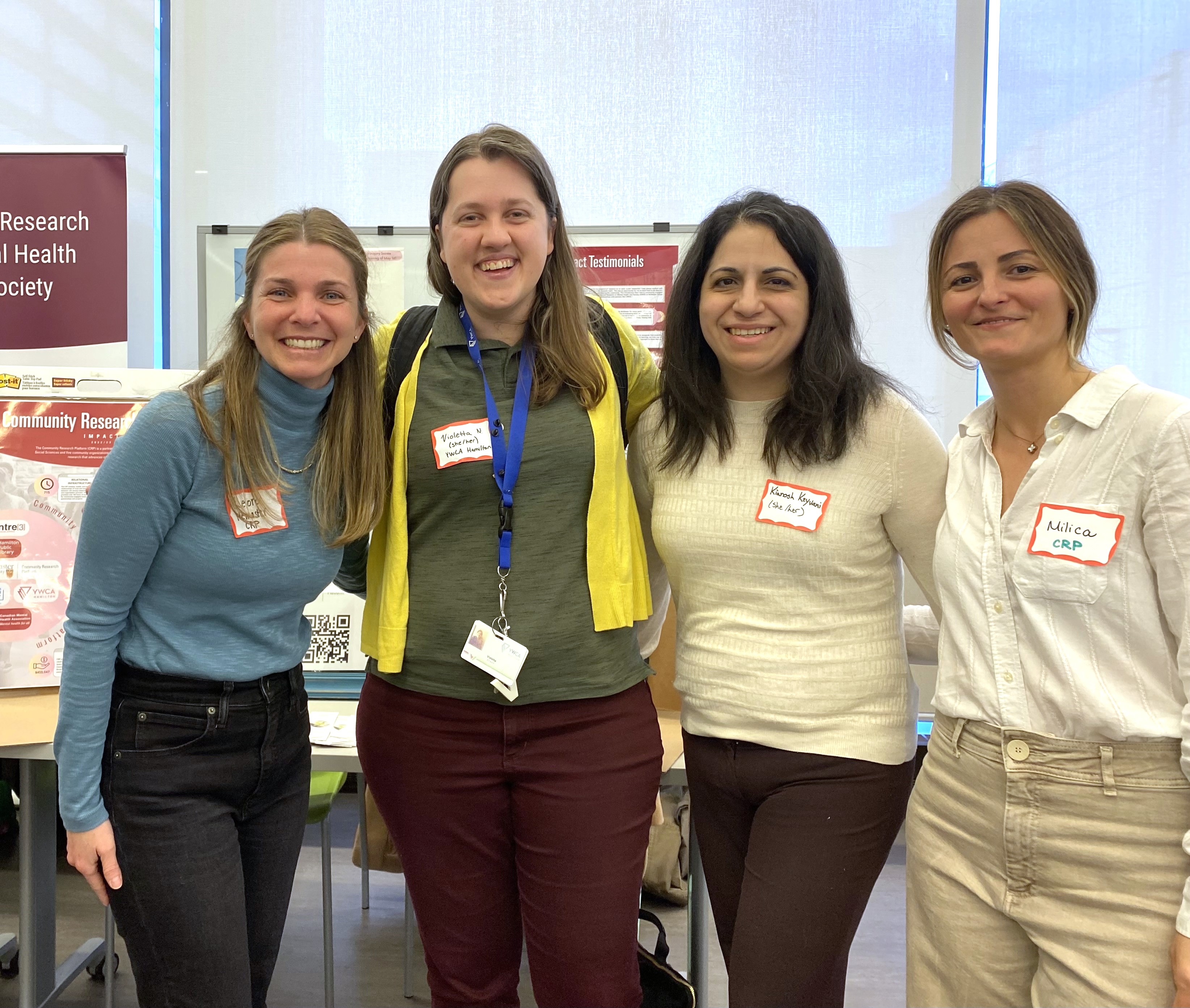Core Research Platforms Facts & Figures (2023-2024)
Impact at a Glance
Across the McMaster campus — from state-of-the-art national research facilities to suites of equipment housed within centres and institutes to department-based laboratories — our core research platforms (CRPs) provide our researchers with the cutting-edge methods and tools required to impact their fields of research. They also enable our private sector, government and community partners to access some of the country’s top talent.
TOTAL NUMBER OF CRPs
TOTAL REVENUE
TOTAL USERS
TOTAL STAFF (FTE)
TOTAL STAFF WITH ADVANCED DEGREES
INVESTED IN CAPITAL AND OPERATIONS
CRPs SUPPORT UNDERGRADUATE LABS
TOTAL STUDENTS AND STAFF TRAINED
STAFF HOURS DEDICATED TO TRAINING
CRPs by Faculty



Impact Stories

Manufacturing advanced technologies to improve health care MMRI website
The McMaster Manufacturing Research Institute (MMRI) is a state-of the-art applied research and innovation centre that finds solutions to challenges faced by the manufacturing industry.
In 2024, MMRI partnered with iMirge Medical to develop a streamlined manufacturing process for bone flaps – a technology commonly used in brain surgeries – using point-of-care 3D printing. Building on a process developed by associate professor of surgery, Dr. Bill Wang, MMRI technical staff created 3D models from CT scan data and used a medical-grade 3D printer and equipment to fabricate molds in house. The result is two sterile mold halves, allowing surgeons to mix bone cement and produce accurate, cost-effective bone flaps within a mere fifteen minutes. The innovation is
expected to reduce healthcare expenses and ensure top-tier patient care.
Celebrating 65 years of innovation in nuclear magnetic resonance NMR website
Established in 1985, the McMaster Nuclear Magnetic Resonance (NMR) Facility houses nine unique research magnets used to advance discoveries in science, health and engineering.
This year, the NMR Facility hosted a Celebration of Magnetic Resonance, which paid tribute to 65 years of McMaster research in the field and the investments and people that have positioned the Facility for continued impact. The Facility also organized a special information session on NMR spectroscopy for Chemical Engineering researchers, resulting in an impressive 86% increase in facility usage by the Department. NMR launched a new Bruker Fourier 80 benchtop NMR spectrometer in 2024 to help guide students through the intricate world of molecules. The device has enabled critical research on fundamental chemical concepts and promises to support further knowledge and research activities led by the Facility’s academic and industry users.
Tackling disinformation with the power of machine learning Digital Society Lab website
The Digital Society Lab is spearheading research on the complex societal transformations that accompany our digital world – from digital currencies to online political advertising, AI and the spread of disinformation.
Over the past year, the Lab has advanced the development of a digital tool that leverages high-performance computing, algorithms and machine learning technologies for the automated detection of mis- and disinformation. The tool will provide a flexible approach in which mis- and disinformation can be rapidly identified regardless of topic. The project is expected to generate valuable IP and has attracted interest from prospective government and private-sector partners. The Lab is currently pursuing funding opportunities to support future phases of the project and members have engaged in outreach initiatives, including conference presentations and educational webinars, to share their work and foster new connections between the Lab, academia, industry and members of the public.

Helping industry better understand and improve materials CCEM website
The Canadian Centre for Electron Microscopy (CCEM) houses best in-class electron and ion microscopes and a team of expert staff who help users solve tomorrow’s materials problems.
CCEM has a diverse, national user base of more than 500 users annually and a history of excellence in industry partnerships. CCEM partners with companies in the nuclear energy sector, including Canadian Nuclear Laboratories and Kinectrics, to advance research and innovation on nuclear materials and clean energy technologies. CCEM offers a wide range of instruments and services– including advanced imaging and analytical data solutions – that are tailored to partners’ specific needs. By leveraging cutting-edge techniques in nanofabrication and 3D materials characterization, CCEM has played a crucial role in advancing the understanding of microstructural properties of materials used in nuclear applications and has become a partner of choice for leading nuclear energy organizations.

Understanding how audiences respond to and interact with performance LIVELab website
The LIVELab is a unique 106-seat Research Performance Hall designed to investigate the experience of music, dance, multimedia presentations and human interaction.
In 2024, LIVELab presented The Innocents – a music performance and accompanying documentary centred on the issue of wrongful incarceration. The performance combined high-level artistry, cutting-edge research, community engagement and social justice advocacy. Throughout the music live performance and film screening, LIVELab measured survey, cardiac and eye-tracking data from participants. In collaboration with their community partner, Innocence Canada, the Lab assessed the performance’s impact on audience members’ awareness, attitudes and behaviours. The results speak to how music increases social empathy. The event marks the first-ever successful attempt at multi-person mobile eye-tracking at such a large scale– a new methodological tool that will serve the LIVELab in many future studies.

Fostering collaboration between student researchers and community organizations CRP website
A partnership between the Faculty of Social Sciences and five community organizations, the Community Research Platform (CRP) is dedicated to building shared infrastructure to foster collaborative research that advances societal health and well-being.
The Community-Engaged Research Graduate Student Internship Program attracts students from across the Faculty of Social Sciences and beyond to engage in mutually beneficial research internships with CRP’s organizational partners. A key goal of the program is to bolster the research capacity of community partners while providing graduate students with opportunities to build professional networks
and develop their knowledge, skills and experience in community-engaged research. As part of the program, interns have assessed and improved Hamilton Public Library’s Social Worker program, supported the development of the Centre [4] Arts + Research and worked alongside the Canadian Mental Health Association to evaluate and enhance the Means Safety suicide prevention project.
Developing innovative engineering solutions to global challenges ADL website
The Applied Dynamics Lab (ADL) is McMaster’s centre for large-scale structural engineering and experimental research.
In 2023, the ADL was awarded $500,000 from the NSERC CNSC Small Modular Reactors (SMR) Research Grant Initiative. The ADL research group is currently utilizing the Lab’s facilities to test relative concrete specimens under extreme events. The research will help support the development of Canada’s nuclear power systems, including concrete containment and safety-related structures. The ADL also secured a $1.3 million grant from the Canada Foundation for Innovation (CFI) and the Ontario Ministry of Colleges and Universities (MCU) to build the first and largest Additively Manufactured Homes for Mobility and Equity (AM-HOME) facility in North America. These full-scale 3D printed concrete housing systems will be tested at the ADL to ensure their capability to withstand extreme events – making them an affordable, resilient and climate change sustainable housing solution for Canadians.
Building new resources to advance social research and innovation Spark website
Spark: a centre for social research innovation connects researchers to the people, skills and tools they need to stand at the forefront of social research innovation.
With the development of their new web-based Research Toolkits, Spark realized a three-year effort to build and curate the very best guides, tools and training focused specifically on the “how” of research. In 2024, the Centre officially launched seven toolkits that offer easy to understand practical starter resources around key social research methods. Each toolkit includes courses, guides, articles and videos that provide introductions to qualitative and quantitative research practices, research quality, knowledge mobilization and more. Researchers across the Faculties can access the toolkits online, fueling their journeys to research excellence with the right resources.

